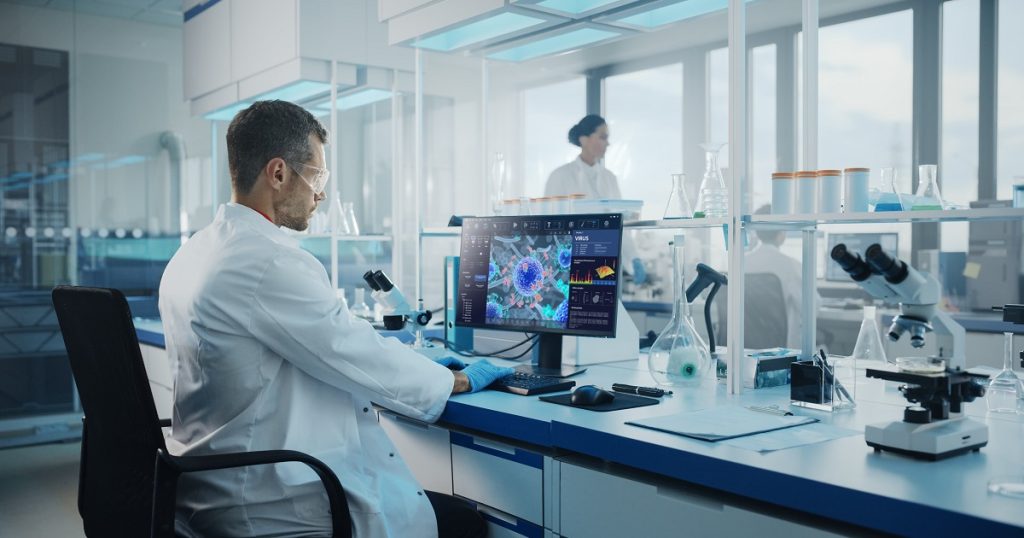The world of biotechnology is a captivating realm where scientists delve into the microscopic world to unlock the secrets of life itself. In laboratories around the globe, researchers are engaged in a ceaseless quest to understand and manipulate the intricate machinery of living organisms. This journey into the microscopic world is not only fascinating but also holds the promise of breakthroughs that can revolutionize medicine, agriculture, and environmental sustainability. In this essay, we will explore the essential aspects of biotechnology research programs and their critical role in shaping our future.

Unveiling the Microscopic Mysteries
At the heart of biotechnology research lies the ability to peer into the microscopic world. Researchers employ powerful tools and techniques to study the smallest units of life, such as DNA, proteins, and cells. The genomic era, characterized by advancements in DNA sequencing, has given us an unprecedented view of the genetic code that governs all living organisms. With this knowledge, scientists can decode the blueprint of life and understand the mechanisms underlying diseases, biological processes, and genetic diversity. UTSA DRS Biotechnology research extends beyond mere observation it encompasses the manipulation and modification of microorganisms. Genetic engineering and synthetic biology techniques allow scientists to engineer organisms to produce valuable compounds, such as insulin, antibiotics, and biofuels. This capability is a testament to the power of biotechnology in addressing global challenges, from healthcare to sustainable energy solutions.
Applications in Medicine
One of the most notable areas where biotechnology research has had a profound impact is in the field of medicine. The ability to manipulate the genetic code has paved the way for groundbreaking therapies and treatments. Gene therapy, for instance, has the potential to cure genetic disorders by replacing or repairing faulty genes. Immunotherapy harnesses the body’s own immune system to fight cancer, leading to remarkable success in treating previously untreatable malignancies. In addition to personalized medicine, biotechnology research plays a pivotal role in vaccine development. It is not just infectious diseases biotechnology has also yielded advancements in regenerative medicine, tissue engineering, and organ transplantation, promising to extend human life and improve its quality.
Agricultural Advancements
The agricultural sector has not been left untouched by biotechnology. Genetically modified GM crops, such as insect-resistant and herbicide-tolerant varieties, have transformed farming practices, increasing crop yields and reducing the need for chemical pesticides. Additionally, biotechnology research has enabled the development of drought-resistant and nutritionally enhanced crops, offering solutions to address global food security and malnutrition challenges.
Environmental Sustainability
Biotechnology research is a crucial pillar in addressing environmental challenges. Microorganisms have been engineered to break down pollutants, remediate contaminated sites, and produce biodegradable plastics. Beyond cleaning up the environment, biotechnology contributes to the production of sustainable biofuels and bioplastics, reducing our reliance on fossil fuels and mitigating climate change.
Challenges and Ethical Considerations
While the journey into the microscopic world is filled with potential, it is not without its challenges and ethical considerations. Ensuring the responsible use of biotechnology, safeguarding against unintended consequences, and addressing concerns about privacy and genetic discrimination are essential aspects that require careful consideration.







